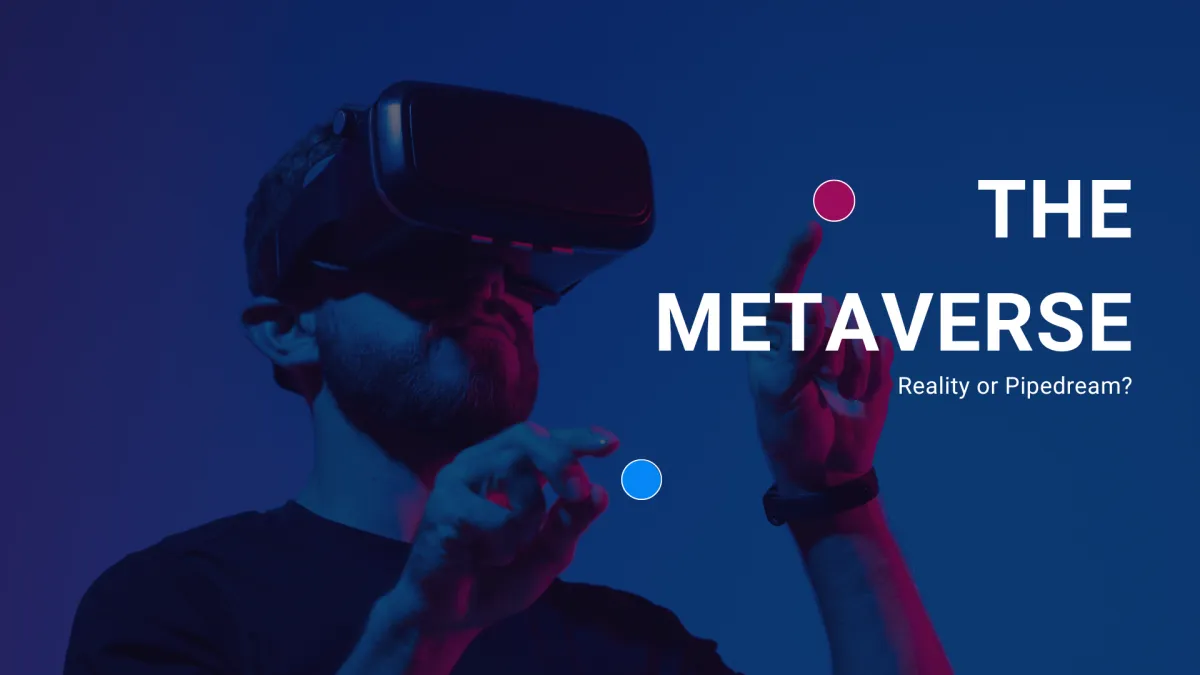
🌌 The Metaverse: A Pipedream or Unrealized Potential? 🤔💭
“Virtual reality is a technology looking for a market.” - Stewart Brand
Introduction:
Today, we embark on a bold exploration of the metaverse, challenging the notion that it is anything more than an elusive dream. Despite decades of anticipation and grand promises, virtual reality (VR) and now the metaverse have failed to live up to expectations. We will delve into the reasons why the metaverse is a pipedream, examining the prolonged hype, the substantial investments in research and development, and the persistently small market. Prepare for a reality check as we confront the artificiality and limitations of the metaverse experience.
Decades of Unrealized Potential
For years, VR has been hailed as the next best thing, captivating the imagination of enthusiasts and even finding its way into blockbuster movies such as "Disclosure." which was in 1995. However, despite significant investment in research and development, VR has failed to achieve widespread adoption. This raises a crucial question: If VR cannot gain traction as a standalone technology, can the metaverse truly become a reality?
The Illusion of Sensory Immersion
While the metaverse promises visually and audibly immersive experiences, it falls short in replicating the full range of sensory encounters. In a virtual beach scenario, for instance, we may see the sun, the sand, and the ocean, but we cannot feel the warmth of the sun on our faces, the texture of sand between our toes, or the invigorating scent of salty ocean air. The artificiality of the metaverse experience exposes its inherent limitations and reinforces the argument that it is far from a true substitute for real-world interactions.
The Limits of Sensory Immersion:
Despite advancements in VR technology, it still struggles to convincingly simulate the full sensory experience of the real world.
Sensory immersion is a crucial element missing from the current metaverse concept, preventing it from delivering on its grand promises.
Market Size and Persistent Niche Appeal
Despite the immense resources poured into VR and metaverse development, the market remains disappointingly small. VR has primarily attracted niche audiences, failing to penetrate the mainstream on a mass scale. The limited user base and lack of diverse applications reflect the reality that the metaverse concept has yet to captivate a broad audience beyond gaming enthusiasts and niche communities.
Challenges in Market Adoption:
According to industry reports, the global VR market revenue reached approximately $7.17 billion in 2021, a relatively small figure compared to other industries, in comparison freelancing is 1.35 Trillion.
Surveys indicate that VR adoption rates among the general population are still relatively low, with only a small percentage of respondents (18%) having used VR technology.
Conclusion:
The metaverse is an alluring concept that has struggled to transition from hype to reality. Despite the prolonged anticipation and considerable investments in research and development, VR and the metaverse have not achieved the mass-market appeal promised by their proponents. The artificiality of the experience, coupled with the limited sensory immersion and niche market penetration, reveals the metaverse's current state as nothing more than a pipedream.
As technology continues to evolve, it is essential to critically assess the viability of concepts like the metaverse. While we acknowledge the progress made in VR development, it is crucial to temper expectations and reevaluate the practicality and real-world applicability of the metaverse.
That concludes this post, shedding light on the harsh reality of the metaverse. Join us next week as we delve into the latest trends and innovations in the ever-evolving world of technology and business.

